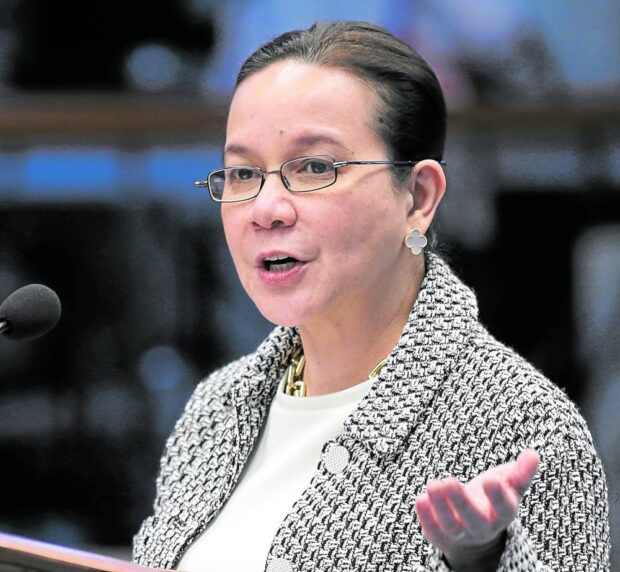
Sen. Grace Poe
SENATE PRIB FILE PHOTO
MANILA, Philippines — Among all its neighboring countries, why is the Philippines only resuming oil and gas exploration ventures with China in the West Philippine Sea?
Sen. Grace Poe raised the question on Monday, pointing out that other nations hold claims to the contested waters.
“Why China, or why only China, when there are other neighboring countries staking claims in the disputed sea?” she asked in a statement.
Foreign Affairs Secretary Enrique Manalo disclosed that the Philippines and China had agreed to restore negotiations on possibly pursuing joint oil and gas exploration.
But Poe stressed that the move comes against the backdrop of unrelenting encroachment of Chinese vessels within the Philippines’ 370-kilometer exclusive economic zone.
“Dozens of diplomatic protests have also been filed related to China’s incursions in our waters, which the foreign government disputes,” she said.
Poe also echoed the reminder of Sen. Francis Tolentino for the government to consider existing jurisprudence concerning maritime explorations in pursuing the agreement.
“Country, Constitution, civility, and transparency must be our key guideposts in any dealing with foreign nations,” she added.
In an earlier radio interview, Tolentino told the Department of Foreign Affairs to proceed cautiously in reviving the deal with China, noting that it could be “abused and result in their bigger presence [in the West Philippine Sea].”
READ: Tolentino cautions DFA about reviving WPS oil search talks
Tolentino said the government must consider the Supreme Court’s rulings and the Hague-based Permanent Court of Arbitration in pushing through with its plans of oil and gas search talks with China.
In January, the High Court declared void and unconstitutional the 2005 Tripartite Agreement for Joint Marine Seismic Undertaking remove word: (JMSU) that allowed wholly owned foreign oil firms from China and Vietnam to conduct a joint exploration with the Philippines for oil resources in the West Philippine Sea.
Under Section 2, Article 12 of the 1987 Constitution, the State may directly undertake activities concerning exploration, development, and utilization of natural resources like co-production, joint venture, or production-sharing deals with Filipino citizens, corporations, or associations where Filipinos own at least 60 percent of the capital.
READ: SC voids 2005 oil search deal; ruling lauded as ‘a warning to Marcos’
Tolentino also cited the 2016 decision by the Permanent Court of Arbitration, invalidating China’s historical claims to nearly all of the South China Sea demarcated by its nine-dash line, including the West Philippine Sea.
He then broached the idea of involving the Senate in discussions on the possible revival of joint oil and gas exploration with China.
Senate Minority Leader Aquilino Pimentel III said Tolentino’s idea is “to be endorsed” if it means hearing the issue “so that the sun can shine on all corners of the agreement or proposed agreement.”